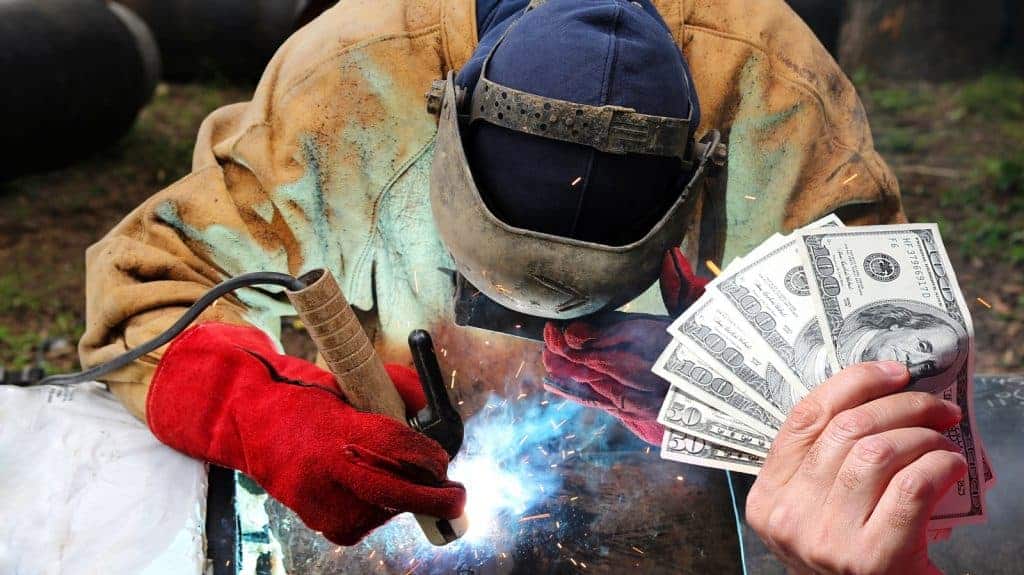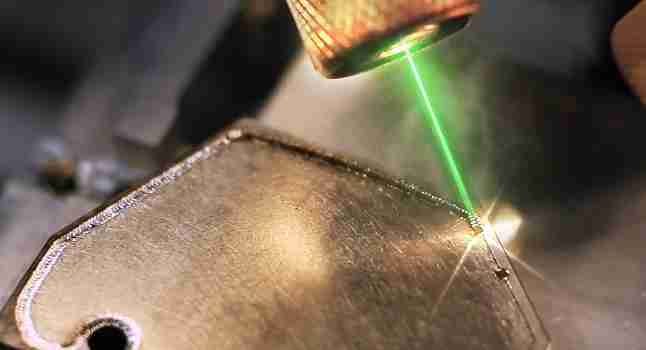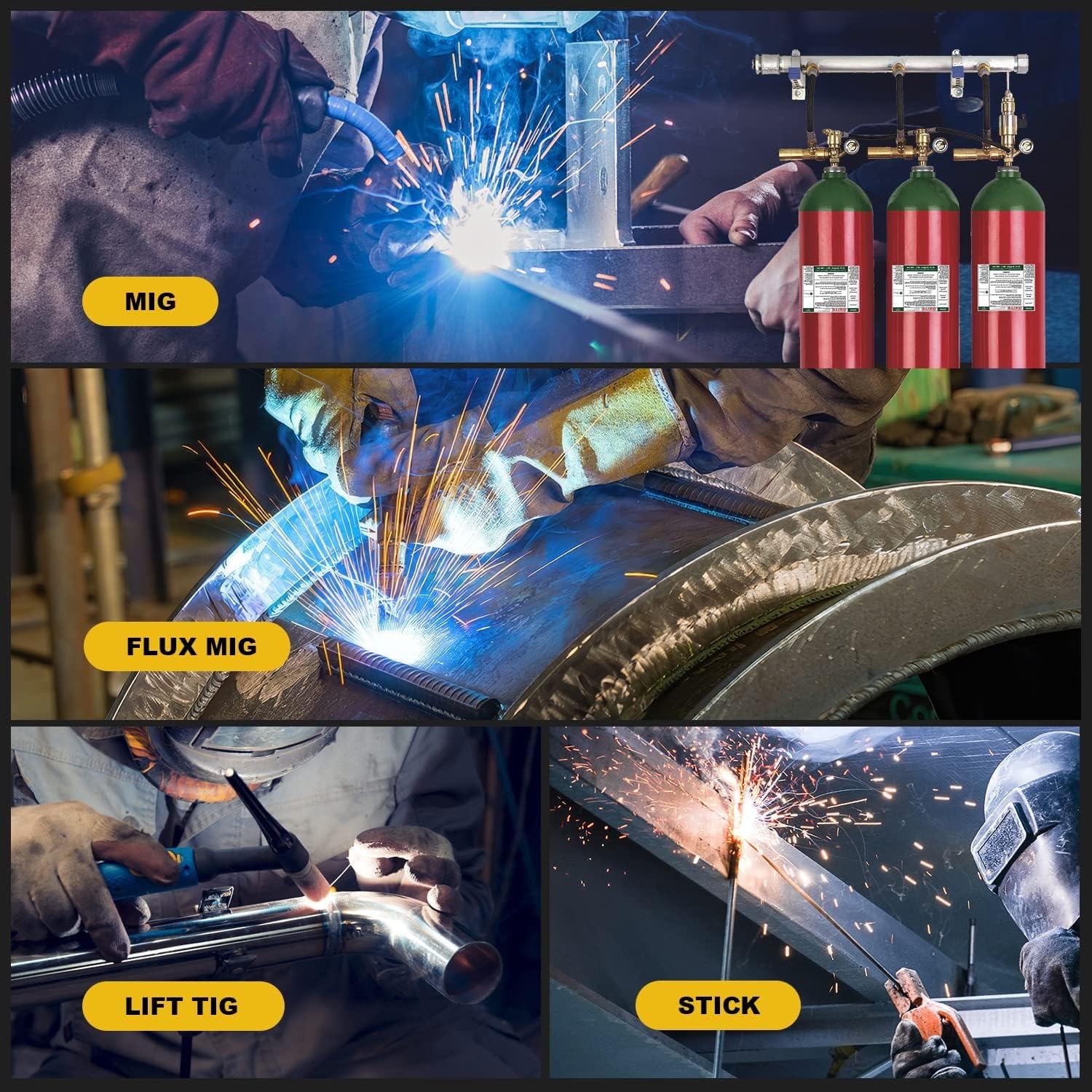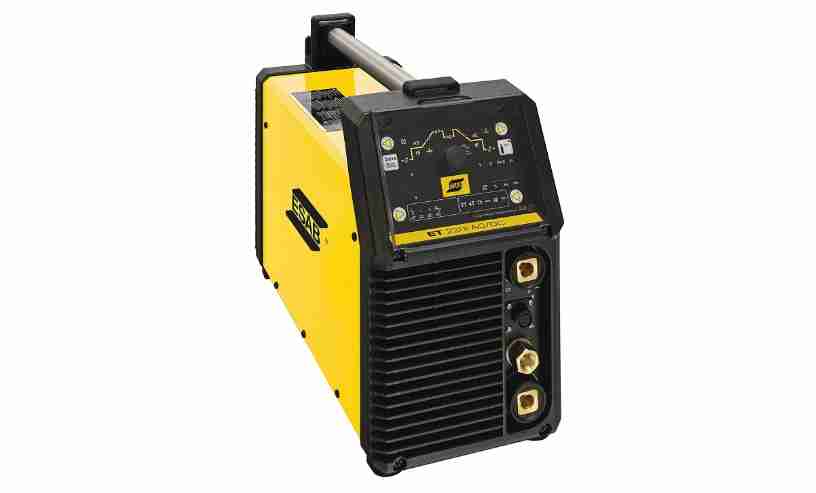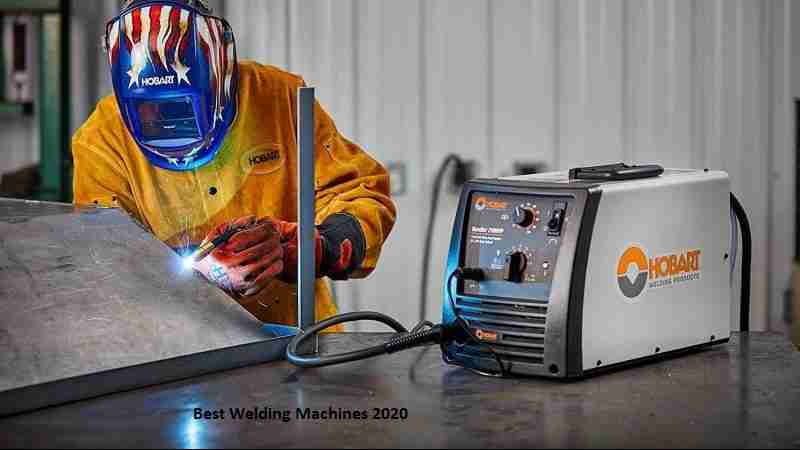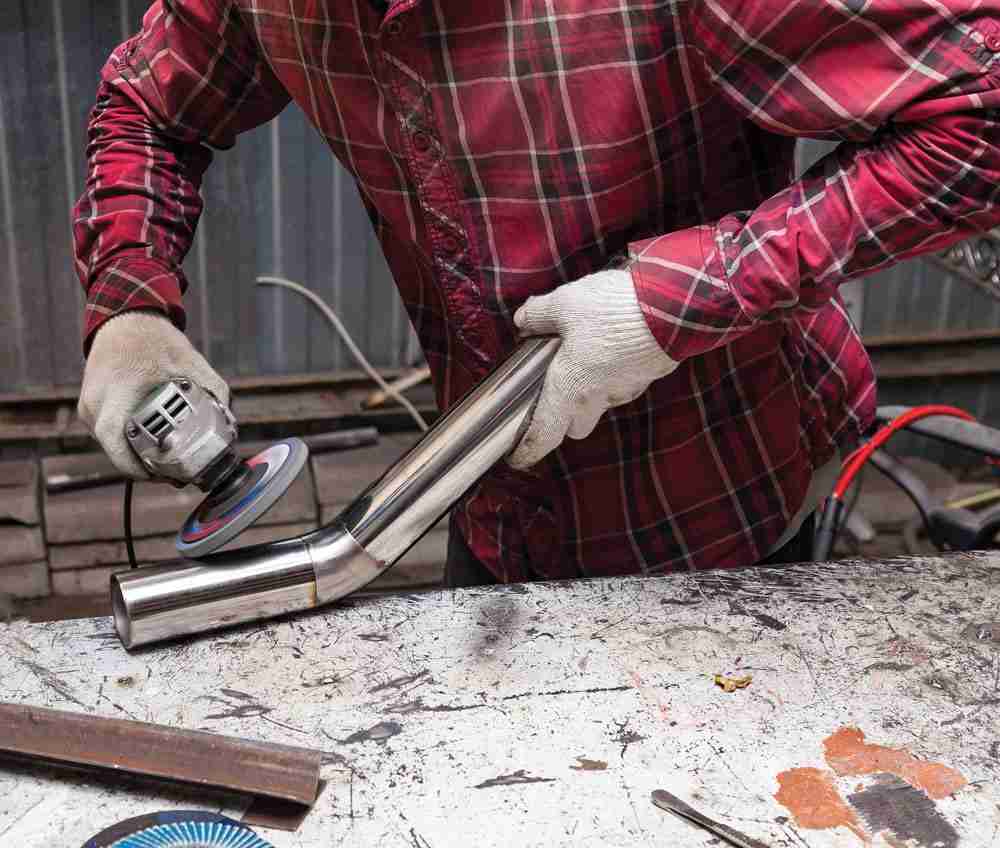Have you ever wondered if welding could be a lucrative career choice?
Look no further because this article aims to answer the question: Do welders make a lot of money? Contrary to popular belief, welding can indeed be a financially rewarding vocation.
With the demand for skilled welders sky-high and the potential to earn a substantial income in specific sectors, the financial prospects for welders are undoubtedly worth exploring.
So, let’s dive into the world of welding and uncover the truth about their earning potential.
Average Salary of Welders
Welding is a skilled trade that offers a promising career path for individuals with the correct set of skills. One of the first questions that often comes to mind when considering this profession is whether welders make a lot of money.
While the answer may vary depending on various factors, it is safe to say that welders can earn a respectable income. Let’s explore the factors that affect a welder’s salary, the benefits of union membership, career advancement opportunities, related job titles, and earnings, and the impact of automation on salaries.
Factors Affecting Welder’s Salary
Education and Certification
In the welding industry, having a solid education and relevant certifications can significantly impact a welder’s salary.
Completing a comprehensive welding program from a reputable trade school or community college equips individuals with the necessary knowledge and skills to excel in the field.
Additionally, obtaining certifications such as Certified Welder (CW) or Certified Welding Inspector (CWI) from organizations like the American Welding Society (AWS) can enhance job prospects and potentially lead to higher salaries.
Level of Experience
Like many professions, the experience level plays a crucial role in determining a welder’s earning potential. As welders gain more experience and become proficient in their craft, they often have the opportunity to take on more complex projects and earn higher wages.
Employers value experienced welders for their ability to produce quality work efficiently, making them more desirable candidates and potentially commanding higher salaries.
Industry
Welders work in a wide range of industries, and their chosen industry can significantly impact their salary. Specific industries like oil and gas, aerospace, and manufacturing tend to offer higher pay scales than others.
This is due to the specialized skills and expertise required in these sectors and the demand for welders in industries that require precision and adherence to strict safety standards.
Type of Work
The type of work a welder performs can also influence their salary. Welders who specialize in specific welding techniques, such as TIG (Tungsten Inert Gas) or MIG (Metal Inert Gas), often earn higher wages due to the advanced skillset required for these methods. Additionally, welders who can work with specialized materials, such as aluminum or stainless steel, may command higher salaries due to the increased demand for their expertise.
Geographical Location
Geographical location is another factor that can significantly impact a welder’s salary. Wages for welders tend to vary across different regions and states. For example, welders working in metropolitan areas or regions with a high demand for skilled welders may earn higher wages than those in rural areas.
Welders must consider living costs in a particular area when assessing potential salary offers.
Union Membership and Wage Differences
Benefits of Union Membership
Union membership can have a positive impact on a welder’s salary and overall work conditions. Labor unions advocate for fair wages, benefits, and improved safety measures for their members.
By joining a union, welders gain access to collective bargaining power, which allows them to negotiate for higher wages and better working conditions. Union members also benefit from healthcare coverage, retirement plans, and job security through union representation.
Impact of Union Membership on Salary
Welders who are union members often enjoy higher salaries than their non-union counterparts. Unions negotiate on behalf of their members to secure competitive wages and comprehensive benefit packages.
Union wages are typically set based on industry standards and consider factors such as experience, certifications, and the specific type of work performed. Welders joining a union can benefit from increased earning potential and job stability.
Career Advancement Opportunities for Welders
Specialization and Additional Certifications
Welders can enhance their career prospects and increase their earning potential through specialization and obtaining additional certifications.
By focusing on a specific welding technique or mastering the skills needed for a particular industry, welders can position themselves as experts and command higher wages. Advanced certifications, such as Certified Welding Inspector (CWI) or Certified Welding Educator (CWE), can also open doors to leadership roles and teaching positions, further increasing earning potential.
Supervisory and Management Roles
As welders gain experience and demonstrate strong leadership and communication skills, they can progress into supervisory or management roles. Welding supervisors or managers oversee and coordinate welding projects, manage teams of welders, ensure quality control, and handle project budgets. These roles often come with higher salaries and increased responsibilities, requiring technical expertise and managerial skills.
Entrepreneurship
For welders with an entrepreneurial spirit, starting their own welding business can be a viable option for career advancement and financial success. By providing welding services independently, welders can set their rates and potentially earn higher incomes. However, running a successful welding business requires excellent welding skills, business acumen, and the ability to market and manage the business effectively.
Related Job Titles and Earnings
Pipefitters and Steamfitters
Pipefitters and steamfitters work closely with welders in the construction and industrial sectors. They are responsible for installing, assembling, and maintaining pipes and ensuring proper plumbing and heating systems. While pipefitters and steamfitters often work alongside welders, their earning potential may differ slightly. On average, pipefitters and steamfitters earn a comparable salary to welders, with opportunities for growth through experience and specialization.
Boilermakers
Boilermakers are skilled craftsmen who specialize in the construction, installation, and maintenance of boilers, tanks, and vats used in various industries. Their work often involves welding, fabrication, and assembly of heavy metal structures. Boilermakers typically earn a similar salary to welders, with the potential for higher wages based on experience and the complexity of projects.
Ironworkers
Ironworkers are crucial in the construction industry, working with structural steel and reinforcing bars. They are responsible for the erection and installation of steel frameworks for buildings, bridges, and other structures. While ironworkers may perform some welding tasks, their work extends beyond welding alone. Ironworkers earn salaries comparable to welders, with opportunities for career growth through experience and advancement into supervisory roles.
Metal Fabricators
Metal fabricators work with various metals to create and assemble structures and components. They employ welding techniques alongside cutting, bending, and shaping metal to fulfill design specifications. While metal fabricators encompass a wider range of skills and tasks than welders, their earning potential is often similar. Experience, specialized knowledge, and the complexity of projects can influence their salaries.
Comparison with Other Skilled Trades
Plumbers and Electricians
There are some similarities and differences when comparing welders’ salaries to other skilled trades, such as plumbers and electricians. While all three trades require technical expertise and physical agility, the earning potential can vary. Plumbers and electricians often earn slightly higher wages compared to welders, mainly due to the specialized nature of their work and the demand for their services in various industries. However, with experience and skill development, welders can bridge the gap in earnings and potentially earn similar salaries.
Carpenters and Construction Workers
Carpenters and construction workers have skill sets that differ significantly from welders, as their primary focus is on constructing and assembling structures using wood, concrete, and other materials.
While carpenters and construction workers work alongside welders on many projects, their average salaries tend to be slightly lower. However, like with other skilled trades, experience, expertise, and specialization can lead to higher wages for carpenters and construction workers.
Mechanics and HVAC Technicians
Mechanics and HVAC (Heating, Ventilation, and Air Conditioning) technicians are skilled tradespeople responsible for maintaining and repairing vehicles, engines, and HVAC systems.
While their work involves different disciplines than welding, there are some similarities in technical skills and physical labor. Welders generally have comparable or potentially higher earning potential than mechanics and HVAC technicians, depending on industry, experience, and specialization.
Welding Jobs with High Earning Potential
Underwater Welding
One of the most lucrative areas within the welding industry is underwater welding. Underwater welders possess both welding skills and training in commercial diving techniques.
This specialized field involves working in extreme conditions, such as underwater environments and offshore locations. Due to the unique combination of skills required and the inherent risks involved, underwater welders often command higher salaries than welders in other sectors.
Aircraft and Aerospace Welding
Aircraft and aerospace welding is another field known for its high earning potential. Welders in this industry work on manufacturing and repairing aircraft parts, including fuselages, wings, and engine components.
The aerospace industry demands precision, adherence to strict safety regulations, and specialized knowledge. As a result, welders working in this sector often earn higher salaries due to the level of expertise required.
Oil and Gas Industry Welding
The oil and gas industry consistently offers high-paying welding jobs. Welders in this sector are responsible for maintaining, repairing, and constructing structures and pipelines used in oil and gas extraction and refining.
The work can be physically demanding and may involve working in remote locations and harsh environments. Welders with experience in the oil and gas industry often earn premium wages due to the specialized skills needed and the importance of their work in the industry.
The Impact of Automation on Welding Salaries
Automation in the Welding Industry
Automation and technological advancements have had a significant impact on the welding industry.
The introduction of robotic welding systems and automated processes has increased efficiency, reduced production time, and improved the overall quality of welds. While this may give the impression that automation threatens welders’ job security and income stability, it is essential to note that automation has also created new opportunities.
Job Security and Income Stability
While some repetitive and routine welding tasks have been automated, skilled welders must oversee, program, and maintain these machines.
Automation has increased the demand for highly skilled welders who understand and operate advanced welding equipment. Skilled welders who continuously adapt, learn new technologies, and specialize in complex welding techniques will continue to be in high demand, ensuring job security and income stability.
Job Outlook and Demand for Welders
Growth in the Construction Industry
The construction industry serves as a prominent source of employment for welders, as welding plays a crucial role in the construction and assembly of structures.
With the global increase in infrastructure development, the demand for qualified welders is expected to remain strong. As cities expand, bridges and buildings are constructed, and existing infrastructure requires maintenance and repair, welders will continue to be in demand.
Infrastructure Projects
Government investment in infrastructure projects, such as roads, highways, and railways, further contributes to the job outlook for welders.
These projects create a demand for skilled welders who can construct and maintain the necessary infrastructure components. As governments prioritize infrastructure development and invest in improving transportation systems, the need for welders in these sectors is expected to grow.
Replacement of Aging Welders
Another factor influencing the demand for welders is the replacement of aging welders approaching retirement.
Many skilled welders from the baby boomer generation are expected to retire soon, creating job vacancies in the industry. This creates opportunities for younger individuals considering a career in welding to step into these roles and benefit from both the demand and potential salary growth.
Conclusion
While identifying the exact salary of a welder can be challenging due to various factors, it is evident that welders can earn a respectable income.
Factors such as education and certifications, experience level, industry, type of work, and geographical location all contribute to a welder’s earning potential. Union membership can provide additional benefits and potentially lead to higher salaries. Welders also have opportunities for career advancement through specialization, additional certifications, supervisory or management roles, and entrepreneurship.
Compared to other skilled trades, welders generally earn competitive salaries, with specific fields offering higher earning potential. Despite the impact of automation, skilled welders who adapt and embrace new technologies will continue to enjoy job security and income stability.
The job outlook for welders remains positive, with growth in the construction industry, infrastructure projects, and the need to replace retiring welders. Overall, welders have the opportunity to build a rewarding career and earn a respectable income in this skilled trade.





